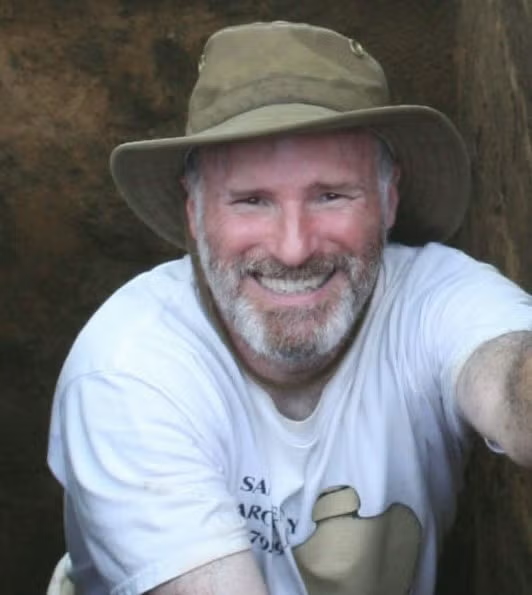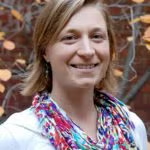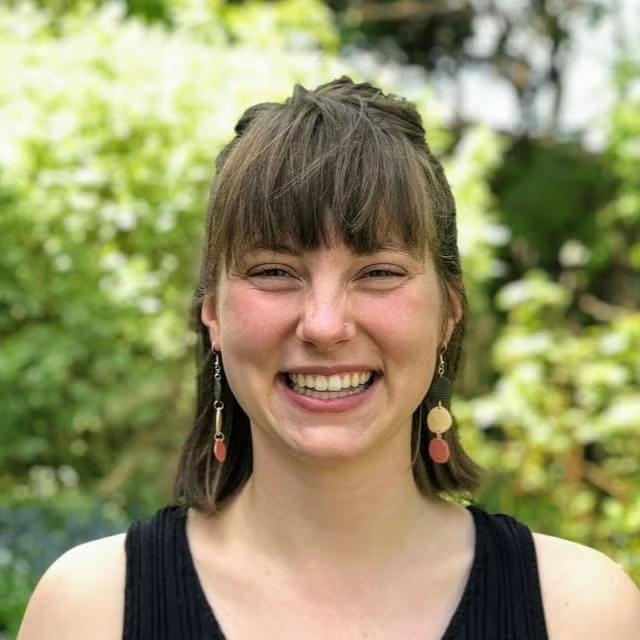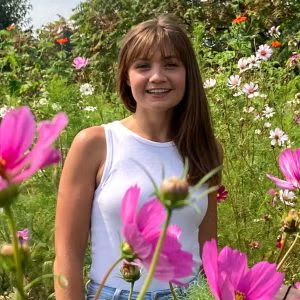
Research Team
The Story Lab is led by faculty members representing four UM schools and colleges: the College of Literature, Science, and the Arts, the School of Education, the School for Environment and Sustainability, and the Taubman College of Architecture and Urban Planning. Faculty participants, graduate research assistants, and students in lab-linked courses work alongside organizational partners to co-develop projects that are aligned with and in support of established community priorities and the educational needs of UM students. Co-produced research products include public programs, curricular materials, media content, digital assets, grant proposals, conference sessions, and resource guides.
The following U-M faculty have been co-PIs on one or more funded DRSL project grants:

María Arquero de Alarcón, is Associate Professor of Architecture and Urban and Regional Planning at Taubman College. Operating at the intersection of architecture, landscape, and urbanism, her work interrogates the agency of design, promoting cultural and environmental values in the agenda of urban sustainability. Her research-based, collaborative design practice studio incorporates sustainable values integrating the knowledge co-generated with community members. She brings to the project program-building and leadership skills as well as extensive experience working with nonprofits in Cleveland and Detroit on socio-environmental agendas concerned with the legacy of urban rivers in the region.

Robin Beck is Professor in the Department of Anthropology and Curator in the Museum of Anthropological Archaeology. His research centers on cultural interactions and long-term social change in Eastern North America during the precolonial and early modern periods. He co-directs archaeological field research on early colonial encounters between Native peoples and European settlers in the Carolina Piedmont and on the emergence of urban lifeways at Native American sites in the Mississippi River Valley. As part of the Detroit River Story Lab, he is advising the Michigan Underground Railroad Exploratory Collective (MUREC), a Detroit-based community group identifying archaeological sites associated with the city’s African American history.

Professor Angela Dillard, the Richard A. Meisler Collegiate Professor of History and Afroamerican & African Studies, was recently appointed Vice Provost of Undergraduate Education. She specializes in American and African-American intellectual history, particularly around issues of race, religion and politics. She is a faculty advisor of the Detroit School of Urban Studies and Co-PI on the Egalitarian Metropolis project, jointly sponsored by LSA and the Taubman College of Architecture and Urban Planning and funded by the Andrew Mellon Foundation. In addition Dillard serves on the Executive Committees for the Bentley Historical Library and as a member of the Michigan History Center’s Freedom Trail Commission.

Through her research and teaching, Melissa Duhaime, Assistant Professor of Ecology and Evolutionary Biology, has applied her expertise in microbial ecology to address pressing Great Lakes issues such as microplastics pollution, algal blooms, avian botulism, and oil pipeline risks. She contributes a strong profile as an engaged community scholar, having testified before the US Senate on microplastics pollution in the Great Lakes, trained as a Science Communication Fellow with the University of Michigan Museum of Natural History, and hosted and participated in numerous science outreach events, from improv comedy and science classroom programs in Detroit to Science Cafés and regular museum appearances in Ann Arbor.

An anthropologist by training and an Associate Professor at the School for Environment and sustainability, Rebecca Hardin leads the Environmental Justice Field of Specialization at SEAS, where she teaches courses on Digital Media and Environmental Politics, and produces the environmental news and learning platform, “It’s Hot in Here.” The author of publications on the global indigenous rights movement, the environmental justice movement, and sustainability education, she also founded and manages the use of the Gala platform for curricular innovation integrating digital media, data analytics and narrative.

The author of two books on war memorials in the 20th-century United States, Associate Professor of American Culture Kristin Hass brings to the project expertise on the refashioning of collective narratives in public spaces. Her experience working in major historical museums, including the National Museum of American History, the Michigan Historical Museum and the Henry Ford Museum, her close involvement with a national consortium of educators and activists dedicated to campus-community collaborations, and her years of teaching about the city of Detroit and about American environmental consciousness help to inform our partnership building and co-production efforts in public spaces up and down the river.

Chauncey Monte-Sano is Professor of Educational Studies at U-M. Her scholarship centers on supporting disciplinary practices in social science classrooms with a focus on teaching history as inquiry. Much of this work examines how adolescents learn to write reasoned historical arguments from evidence and how such instruction can be a tool to challenge inequities in students’ literacy outcomes. She works to develop curricular models to support all students’ disciplinary thinking, reading, and writing and researches how teachers—both novices and veterans—learn to take up this instructional approach. She has won research grants from the McDonnell Foundation, the Institute of Education Sciences, the Spencer Foundation, the Braitmayer Foundation, and the Library of Congress to support this work.

David Porter, Professor of English and Comparative Literature, brings to the project’s PI role his scholarly expertise in narrative and transcultural studies and his experience in academic leadership and innovative, public-facing program building. He took a lead role in the creation of U-M’s new MA program in Transcultural Studies and Great Lakes Arts, Cultures, and Environments summer program at the BioStation, as well as the organization of LSA’s Great Lakes Theme Semester and the launch of the Detroit River Story Lab. As Chair of U-M’s Department of English, he spearheaded the development of new community-based learning courses in first-year writing and long-form journalism, built internship programs for graduate and undergraduate students, and established the presidentially funded Great Lakes Writers Corps.

Ebony Elizabeth Thomas is Associate Professor in the Joint Program in English and Education at the University of Michigan’s School of Education. A former Detroit Public Schools teacher and National Academy of Education/Spencer Foundation Postdoctoral Fellow, she has published widely on racial representations in children’s literature and on race, discourse, and interaction in classrooms and digital environments; her expertise on these topics has been sought after nationally and internationally, and she has been interviewed by MSNBC, the BBC, the New York Times, the Philadelphia Inquirer, and the Chicago Tribune. She is currently conducting empirical, digital, and archival research for a major project on how traumatic historical events such as slavery are introduced in the teaching of literature and through children’s picturebooks, popular media, and the social Web.
The following U-M graduate students have made significant contributions to DRSL projects over one or more semesters:

Samantha L. Adams is a Ph.D. Candidate in English and Women & Gender Studies at the University of Michigan. She studies the relationships between African American literature of the 20th and 21st centuries, Ecocriticism, and Black Feminisms. Her dissertation will focus on the ways in which bodies/forms of water beyond the Atlantic Ocean and the moment of Middle Passage shape Black life within and without literature. She contributed to DRSL projects including a resource guide on the Underground Railroad and the Detroit River Project’s Resistance on the River curriculum.

Leila Braun is a PhD candidate in English Language and Literature and a certificate student in the Museum Studies Program. As a research assistant with the Detroit River Story Lab in 2021, she created an interactive digital map of heritage sites on the Detroit River, several resources on heritage designation, and a gap study that reviewed progress toward UNESCO World Heritage status for the river. Her other related work includes a dissertation on the relationship between contemporary U.S. literature and environmental crisis and projects with the U.S. Holocaust Memorial Museum and the Ford Piquette Avenue Plant Museum in Detroit.

Naomi Cutler is an MS candidate at the School for Environment and Sustainability with a focus on Behavior, Education, and Communication and Geospatial Data Science. She’s interested in the role of visual communications and mapping for climate disaster relief and preparedness. Naomi joined DRSL in the Winter of 2023 as the digital cartography research assistant. She has been creating an online web tool that holds a library of historical maps of the Detroit River. The map will serve as a storytelling resource for organizations and people in the Detroit River corridor.

Gene Estrada is a Ph.D. candidate in the Anthropology department, studying primate behavioral ecology in Western Borneo, Indonesia. He uses quantitative methods to assess the influence of various ecological variables on primate habitat use and movement. He has been working with the DRSL to produce a greenhouse gas emissions inventory of the Detroit River Corridor, and develop interactive visualizations and other data products to be used by local educators and journalists.

Bailey Flannery is a PhD candidate in English Language and Literature. As a research assistant with the Detroit River Story Lab, she has created a limited-release podcast series of interviews with various Detroiters centering on their personal and political histories with the River. In addition, she has crafted a guide for future DRSL interns conducting ethnographic-journalistic fieldwork and compiled a bibliography of scholarship on the nexus of community storytelling and social and climate justice. Her preliminary scholarship focuses on medieval stories and storytelling practices and how they reappear in contemporary works and modalities.

Kayla Grant is a research assistant for the Detroit River Story Lab. She brings to the project her expertise in narrative studies as a PhD candidate in English language and literature, as well as her experience in social justice advocacy. As a member of the Story Lab she has researched and developed a webpage detailing the University of Michigan’s historic relationship to the Detroit River, assisted the Detroit Historical Society in organizing “100 Years, 100 Stories”—a series of community-driven exhibits and programs—and helped create interpretive signage for Detroit’s Riverside Park.

Martha Henzy is a PhD candidate in English Language & Literature and Project Manager for the Detroit River Story Lab’s Anti-Racist Digital Research Initiative Grant. As a member of the Story Lab she researched, developed, and piloted an interactive timeline on the Detroit River Region’s history and environment, and she is currently working to support the Lab’s development of digital community heritage resources. Her scholarship centers on memory work and public space, particularly around issues of mourning, performance, and spectatorship.

Ashley Jankowski is a dual master’s student of Urban and Regional Planning and Environment and Sustainability with an Environmental Justice specialization. Her research and writing interests lie at the intersection of cities and stories, with a particular focus on local journalism. As a Research Assistant for DRSL, Ashley helps to expose interdisciplinary students to the field of journalism and to support them in developing basic journalistic and storytelling skills. Her current project involves developing and piloting a self-guided module for students to translate in-class research interests into pitches for public-facing news articles and essays.

Skyler Leslie is a graduate student in UM’s School for Environment and Sustainability, where she is pursuing an MA in Environmental Justice and Sustainability & Development along with a certificate in Museum Studies. As a member of the Detroit River Story Lab, she is involved in reworking interpretive signage at Detroit’s Historic Fort Wayne, focusing on uplifting community storytelling and contextualizing the site in the history of the Great Lakes region. Her scholarship focuses on intersections of public history, natural environments, cultural institutions, and conservation. Her experiences of growing up in the Detroit River region influence her work and motivate her to foster inclusive learning experiences at heritage sites.

Elana Maloul is a PhD candidate in the Department of English Language & Literature and Project Manager for the Detroit River Story Lab. Elana brings to the lab her experience in administrative management for the University of Michigan’s Museum of Art and the English Department Writing Program, along with her scholarly investment in multimedia, interdisciplinary projects. She currently fosters connections with several community partners by creating assessment programs, managing experiential education workshops, and designing career pathways toolkits.

Talitha Pam is a doctoral student in Anthropology and History with research interests in community-based environmental action in sub-Saharan Africa. She brings to the Story Lab extensive experience in community engagement and facilitation, having previously served as a research associate for the Young Innovators in Entrepreneurship, Leadership and Development (YIELD) project at MSU, which assisted young entrepreneurs in accessing and maximize agri-food systems opportunities in agri-food systems in Africa. She is currently working with DRSL partners at Belle Isle Conservancy to collect oral histories from long-time users of the island.

Taru is a PhD candidate in Urban Planning. Her work situates itself in international and post-colonial territories and is deeply engaged with normative planning theories and their application in places with plural institutions, structural violence, and difference. Taru has been working as a Research Associate with the Detroit River Story Lab – and continues to contribute to primary capacities. First, as a researcher (with David Porter), she has worked on several embedded projects involving visioning, on-ground research, program development, pedagogical design, and need assessments.

Natasha Vatalaro is a graduate student in the School for Environment and Sustainability, pursuing an MS in Sustainable Systems and Geospatial Data Sciences. A lifelong Michigander and Detroiter, Natasha has always been interested in the shape of narratives around the Great Lakes and the Detroit River, and has focused more recently on the intersection of GIS mapping, environmental justice, and conservation storytelling. As a researcher with the Detroit River Story Lab, she is collaborating with other DRSL members to create a climate curriculum master case on the Gala learning platform for Detroit high school students. She is also developing a web-based article on the activism surrounding the 1948 Detroit River duck deaths. ,


